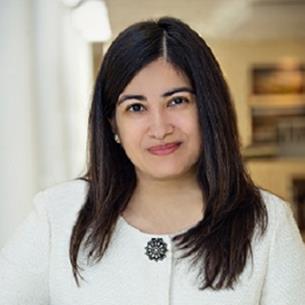Meeting
2018 ASCO Annual Meeting

University of Michigan Health System, Ann Arbor, MI
Reshma Jagsi , Kevin C. Ward , Paul Abrahamse , Lauren P. Wallner , Allison W. Kurian , Ann S. Hamilton , Steven J. Katz , Sarah T. Hawley
Background: Little is known about whether growing awareness of the financial toxicity of cancer diagnosis and treatment has led to increased clinician engagement nor the status of current patients’ needs. Methods: In 2013-15, we surveyed women with early-stage breast cancer, identified through population-based sampling from two SEER regions (Los Angeles and Georgia), and their physicians. We describe responses about experiences with financial toxicity and its management received from 73% of surgeons (n = 370), 61% of medical oncologists (n = 306), 67% of radiation oncologists (n = 169), and 68% of patients (n = 2502). Results: Half (50.9%) of responding medical oncologists reported that someone in their practice often or always discusses the financial burden of cancer with patients, as did 15.6% of surgeons and 43.2% of radiation oncologists. Among patients, 17% spent ≥10% of household income on out-of-pocket medical expenses and 7% spent ≥10% of household income on out-of-pocket nonmedical expenses. Debt from treatment was reported by 27.1% of whites, 58.9% of blacks, 33.5% of Latinas, and 28.8% of Asians. Privations were common: 21.5% of whites and 22.5% of Asians had to cut down spending on food, as did 45.2% of blacks and 35.8% of Latinas. Few whites (1.4%) or Asians (1.0%) lost their home, but 4.7% of blacks and 6.0% of Latinas did. Many patients desired to talk to healthcare providers about the financial impact of breast cancer: 15.2% of whites, 31.1% of blacks, 30.3% of Latinas, and 25.4% of Asians. Unmet patient needs for engagement with doctors about financial concerns were common. Of the 945 women who expressed worrying at least somewhat about finances, 679 (72.8%) indicated that cancer doctors and their staff did not help at least somewhat. Of the 523 women who expressed a desire to talk to healthcare providers about the impact of breast cancer on employment or finances, 283 (55.4%) reported that they had not had a relevant discussion. Conclusions: Improved clinician assessment and communication regarding financial toxicity are necessary. Even physicians who perceive that they are routinely offering necessary services may fail to meet patient needs. Cure at the cost of financial ruin falls short of physicians’ duties.
Disclaimer
This material on this page is ©2024 American Society of Clinical Oncology, all rights reserved. Licensing available upon request. For more information, please contact licensing@asco.org
2018 ASCO Annual Meeting
Poster Session
Patient and Survivor Care
Patient and Survivor Care
Psychosocial and Communication Research
J Clin Oncol 36, 2018 (suppl; abstr 10080)
10.1200/JCO.2018.36.15_suppl.10080
10080
68
Abstract Disclosures
2023 ASCO Quality Care Symposium
First Author: Celeste K Nsubayi
2022 ASCO Annual Meeting
First Author: Nishwant Swami
2016 ASCO Quality Care Symposium
First Author: Ellie Proussaloglou
2024 ASCO Annual Meeting
First Author: Barbara Oureilidis-DeVivo